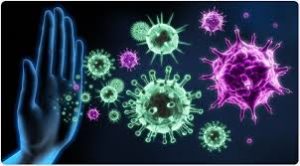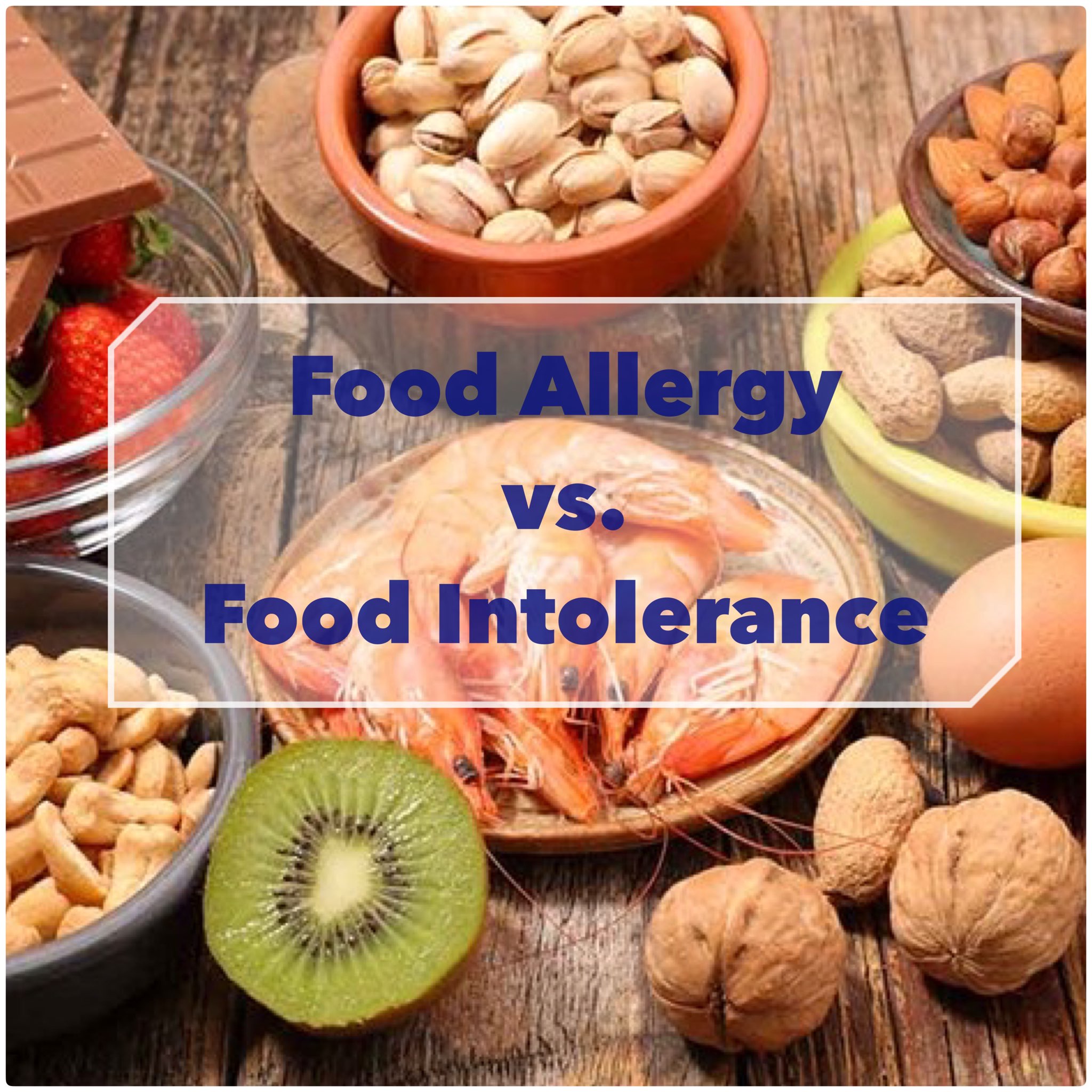Did you know that 150 million Europeans suffer from chronic allergic diseases, and 48% of them have more than one allergy? Sounds like a lot doesn’t it? So, you’d be surprised to learn that only 2% of people who come to us with suspected food allergies actually have them.
Every day we discover more people who have been misdiagnosed. They do NOT have allergies but are living with the following issues instead:
- They are intolerant to foods
- They are living with environmental toxins
- They are allergic to chemicals or dust particles
- They have a weak immune system
- They have poor digestion
Food allergy or intolerance?
Allergic responses to food can range from experiencing minor symptoms to having a critical immune reaction which requires immediate medical attention. Some symptoms of intolerance can replicate those of a cold, or even asthma, so it can be tricky to tell the difference between an allergy, a cold, food intolerance or a true food allergy. But there are stark differences – especially between food intolerances and true food allergies – which we cover below.
Research has shown that some factors mean that you are slightly more likely to have a food allergy or intolerance. These include:
· Being born by C-section delivery
· Using antibiotics
· Not being exposed to microbes in your early childhood
· Having a high fat/low carb diet
· Having a low immune system
· Too much stress or exercise
What happens to your body when you are allergic to something you eat?
When you’re allergic to something you eat, your immune system thinks it is a threat to you so produces immunoglobulin antibodies to neutralise it. It also releases chemicals including histamine to your bloodstream which may give you a range of symptoms immediately or within a few hours. The most severe symptom is an anaphylactic shock which can lead to death unless an EpiPen is used as soon as the symptoms arise.
What happens to your body if you are intolerant to something you eat?
A food intolerance is an abnormal but not allergic response to a food.
With intolerance, the immune system does not get involved and there are no antibodies or histamines released. Instead, your body has a tough time breaking down or digesting that food, ingredient or additive. Reactions include abdominal pain, diarrhoea, bloating, constipation, cramping, and nausea.
If you are intolerant to something you eat, this could be as you are:
- Allergic to food additives, colours or sulphites
- Lacking the correct enzyme for breaking down specific foods – e.g. lactose intolerance
- Sensitive to chemicals like caffeine
- Sensitive to toxins in some raw legumes
- Experiencing psychological influences including stress and aversion to foods
- Living with irritable bowel syndrome
- Living with Coeliac disease
How to tell the difference between a food intolerance and a true allergy
With an allergy, you won’t have a fever and your symptoms will go on for far longer. You may also just have allergic reactions at some times during the day, or while you’re doing certain activities. If you wake up feeling congested, you may be allergic to dust mites. Feeling allergic during your morning wake up walk? That may be due to pollen. Clear watery mucus production is also likely to be allergies rather than a cold.
If you have a true food allergy, your body will produce an immune response. A food intolerance will produce symptoms, but your immune system will not be involved.
The most common foods related to allergies and intolerances
- Peanuts
- Tree nuts
- Fish
- Shellfish
- Soy
- Wheat
- Milk
- Eggs
You cannot have “just a taste” of something to which you are truly allergic. In fact, 1/250th of a peanut is enough to trigger a reaction in some people.
The foods which people are most likely to be intolerant to are:
- Lactose
- Gluten
- Preservatives
- Additives
- Tyramine (common in cured meats, aged cheeses and smoked fish)
Food intolerances are significantly more common than allergies.
Could it be allergic asthma or a cold?
Colds can cause a fever, but your symptoms – runny nose, sore throat, watering eyes, sneezing and coughing – will clear up in 14 days or fewer. Colds cause symptoms 24/7 and are likely to come with a thick green mucus.
With allergic asthma, the triggers which provoke your allergies (like pollen or cats) may also set off asthma. Sometimes food allergies can also have the same effect.
With allergic asthma, you get the typical food allergy symptoms (which may include nausea, vomiting, diarrhoea, a rash, hives etc) followed by wheezing and coughing. At this stage, you can have anaphylaxis – a swelling of the throat, and an inability to breathe.
Did you know that eating junk food can make it more likely that you’ll get asthma and allergies? Some preservatives can also trigger asthma attacks – including sulphites which you can find in food including wine, dried fruits and shrimp.
What can offer short and long term relief from food allergies and intolerances?
- Use a neti pot
- Avoid sugars and grains
- Increase intake of animal-based omega-3 fats
- Reduce your intake of omega-6 fats
- Increase your intake of Vitamin C and Vitamin D
- Eat more fermented vegetables or probiotics
- Avoid pasteurised milk products
- Use hot peppers as natural decongestant
- Try so-called natural antihistamines including apples, berries, red grapes, red onions and capers
- Apply eucalyptus oil to a cotton ball and sniff it, or put some in your bath
- Increase your body’s oxygenation with techniques like Breathing Retraining
Long term results can only be achieved by strengthening the immune system through lifestyle changes, increased body oxygenation, detoxing and rebuilding the gut under the supervision of a health professional.
Can improving your gut health help your allergies and intolerances?
Did you know that your gut microflora will be different if you have a food allergy?
People with food allergies seem to have interaction between bacteria in their intestinal system, including Bacteroides, Enterobacteria, Bifidobacterial and Lactobacilli. These somehow seem to train the body to tolerate food triggers. It  therefore stands to reason that if you don’t have these bacteria, you’ll be less likely to be able to tolerate these triggers.
therefore stands to reason that if you don’t have these bacteria, you’ll be less likely to be able to tolerate these triggers.
Improving your gut health can help your allergies and intolerances. Check out this blog to find out more.
Nadezhda had a severe skin condition (eczema) that she had suffered from for the past few years. Her energy levels and general mood were not the best, either. After working with Kostas and being familiar with his Kapelas Health System™, her life changed completely. Within ten days, her chronic skin conditions completely reversed. “I feel so amazing, so different, bright and light,” said Nadezhda. The clinic worked with Nadezhda for over a year, using bioresonance technology, diet and lifestyle improvements as well as breathing therapies.
–Nadezhda Chupik, mother of two young children
Find out more
There are many food allergies and food intolerances as well as environmental allergies and intolerances. Thanks to our help, all your intolerances can disappear, and all your allergies can be reduced if we support you on a journey to detox and repair your gut and increase the oxygenation of your body.
Read more about our allergy and intolerance testing here and book a free 20-minute telephone consultation on this link.










